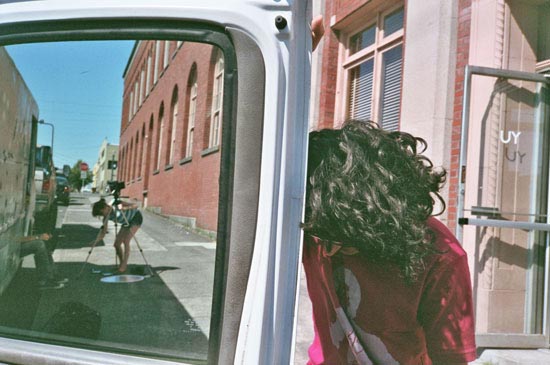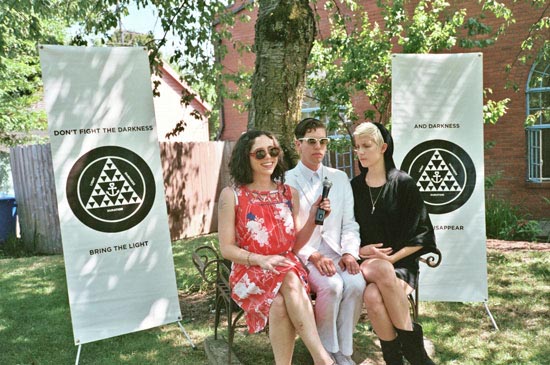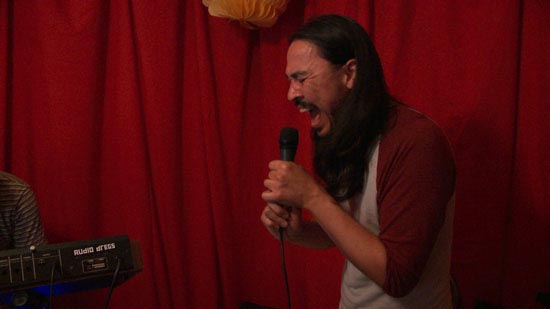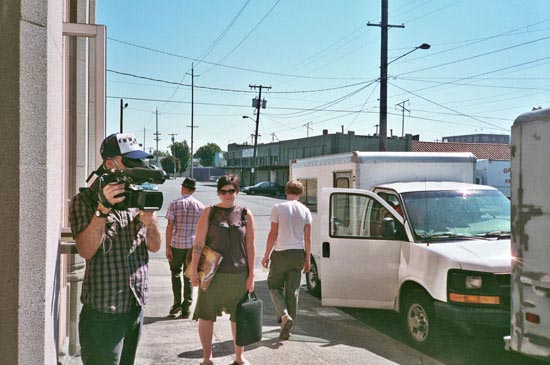Don’t Move Here
Wieden+Kennedy’s new online video series documents Portland’s thriving music scene

by Adrienne So

Wieden+Kennedy’s latest venture, an online video and radio portal dubbed WK+Entertainment, puts the advertising giant into the content production game. Among the offerings, the web series “Don’t Move Here” documents Portland’s ever-blossoming music scene in video. Helmed by writer, curator and director Aaron Rose, who’s behind the acclaimed film “Beautiful Losers,” the project features concert footage and interviews by WK’s Shayla Hason, who also acts as host. We recently spoke with Hason about what sets Portland’s creative processes apart and why anyone would want to move there.

Cool Hunting: First off, why is the series called “Don’t Move Here?” Is there a lot of interest in keeping Portland’s music scene more private?
Shayla Hason: I don’t know if they want to keep it more private. The title comes from a Tom McCall quote in the early ’80s: “We want you to visit, but for God’s sakes, don’t move here.” In the past year or two, people think they’re going to make it big in music if they move here, but that’s so at odds with what’s made Portland’s scene so successful. People move here just to play music, not to be famous. The scenes are much more welcoming than in other cities, but there’s only so many barista jobs. And it’s not like A and R people are wandering the streets here. There’s also something to be said for growing the scene where you live. Your town could probably use way more help than Portland could. Your town also needs an all-ages venue and an indie music label. You can grow a community wherever you are.
CH: Everyone talks about Portland’s scene in such reductive terms: “Living expenses are cheap! There’s a lot of house parties!” What do you think the series is doing differently from all the other music journalists who rapturously cover Portland?
SH: I think one big difference is that it’s not cult-of-personality reporting about the musicians. We try to focus on the people that are involved in all different facets of the many music scenes, like the kids who run the record studios, or the poster designers, or the bookers. We always have a band playing at the end of each episode, but we’re interested in all different facets. And also, we’re not interested in keeping it to bands that are on some national, albeit underground, level. We’ve had some bands like Yacht that are beginning to be well-known, but we’re not going to talk about…The Gossip! Or…the Dandy Warhols! We’re interested in the things that are bubbling up.

CH: One of the common themes that runs through the shows is cross-pollination. Everyone’s in six bands, and has a clothing line, and works in a bar. Do you think that contributes to Portland’s cultural creativity?
SH: Cross-pollination definitely contributes. What saved Portland, and what we saw fail in Seattle, was that there’s not one particular Portland sound. So the major music industry can’t shoebox it, define it and blow it up. There’s so many different kinds of Portland sounds. The welcoming aspect is what’s led to the cross-pollination.

CH: When and why did you move here?
SH: It was in the beginning of 2000, I was getting out of the airplane for the fourth time within a year, and I thought, “I should just move here.” My brother went to school here in the early ’90s. I mainly moved here because it’s the most livable city in the U.S.—for a particular sort of person, that is. Definitely don’t move here if you think it’s a big city, because it’s not. But I think it’s really livable.











